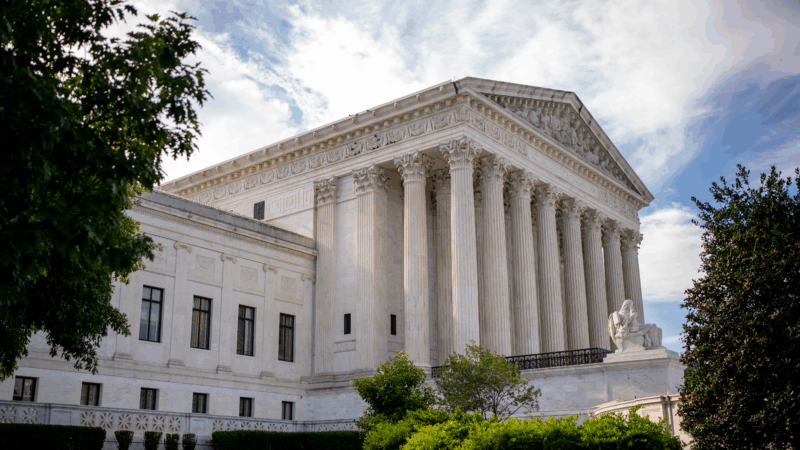Judge considers ‘contempt’ after Trump officials stonewall ruling on migrant removal flights
WASHINGTON — A federal judge on Thursday said there is a “fair likelihood” the Trump administration violated his orders over its decision to allow two flights carrying migrants to continue to El Salvador last month despite his ruling ordering the planes back.
U.S. District Judge James Boasberg Thursday pushed, once again, the Justice Department to explain its use of the Alien Enemies Act — a rarely-used wartime power — and key details and the timeline of the flights, something the administration has suggested is confidential information covered by state secrets protections.
“If you really believed everything you did that day was legal and could survive a court challenge, I can’t believe you ever would have operated in the way you did,” Boasberg told the attorneys for the Justice Department.
He also voiced skepticism about the government invoking the state secrets doctrine, pressing the government to name another case where unclassified information was covered by that privilege.
But Drew Ensign, a deputy assistant attorney general, doubled down on the arguments the Department of Justice had made through the case — that Boasberg’s initial order, a verbal one, did not carry as much weight as his written order hours later.
He also argued in court that the administration did not violate his orders, but Boasberg was not convinced.
“So it seems to me, there is a fair likelihood that that is not correct,” Boasberg replied. “In fact, the government acted in bad faith throughout that day,” he said.
Flights to El Salvador
The flights at the heart of the case left the U.S. on March 15, the same day President Trump invoked the Alien Enemies Act of 1798.
The administration argues the president’s proclamation gives him the authority to quickly remove alleged members of Tren de Aragua, a Venezuelan gang designated by the White House as a foreign terror organization, without regular due process.The administration sent more than 100 men to a maximum security prison in El Salvador under the law.
The American Civil Liberties Union and other immigrant-rights advocates quickly filed a lawsuit to block the removal of the men, and Judge Boasberg held an emergency hearing that afternoon.
Boasberg blocked the Trump administration from using the Alien Enemies Act to deport anyone and verbally told Justice Department lawyers that any plane in the air “needs to be returned” to the U.S. But the planes were not turned around. They landed in El Salvador later that day.
Next steps
On Thursday, Boasberg suggested that next steps could include contempt proceedings. He said that order would likely be issued next week.
The case has many moving parts.
The Trump administration appealed Boasberg’s March injunction in the D.C. Circuit Court of Appeals. In a 2 to 1 vote, the Court sided with Boasberg.
In her opinion, Judge Patricia Millett said the alleged gang members were not given an opportunity to challenge the allegations against them before being sent to El Salvador.
The Trump administration has appealed the decision to the U.S. Supreme Court, which is currently weighing whether to intervene.
‘My role was making movies that mattered,’ says Jodie Foster, as ‘Taxi Driver’ turns 50
Foster was just 12 years old when she starred in the 1976 film. "What luck to have been part of that, our golden age of cinema in the '70s," she says. Her latest film is Vie Privée (A Private Life).
Supreme Court appears likely to uphold state bans on transgender athletes
To date, 27 states have enacted laws barring transgender participation in sports.
Keep an eye out for these new books from big names in January
The new year begins with a host of promising titles from George Saunders, Julian Barnes, Jennette McCurdy, Karl Ove Knausgaard and more. Here's a look ahead at what's publishing this month.
Want to play a Tiny Desk concert? The 2026 Contest is now open for entries
The 2026 Tiny Desk Contest, our annual search for the next great undiscovered artist, is now officially open for entries.
Scott Adams, the controversial cartoonist behind ‘Dilbert,’ dies at 68
Adams announced in May that he was dying of metastatic prostate cancer. Thousands of newspapers carried his strip satirizing office culture from the '90s until a controversy in 2023.
As Iran’s protests continue, Israelis and Palestinians watch closely
There is broad support for the protests among Israeli officials, but Palestinians say they hope the Iranian regime stays in place and the protests die down soon.







